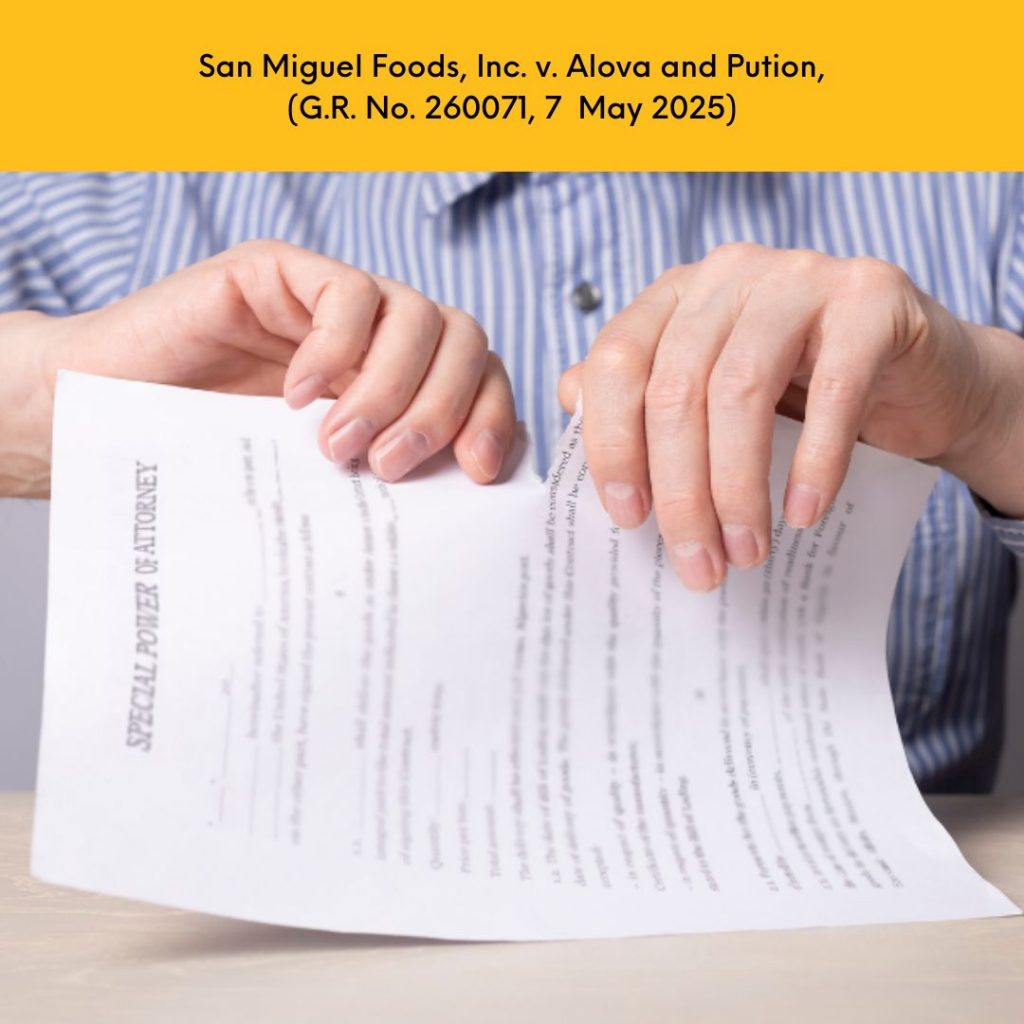
Published 07 Sep 2025, The Daily Tribune
In the complex realm of real estate transactions, property owners often delegate their dealings to a trusted representative—whether a family member, broker, or agent—through a Special Power of Attorney (SPA). This legal document typically grants these representatives broad authority to act for and on behalf of the property owner, enabling them to negotiate, make decisions, and execute transactions involving the property. In many instances, the authority conferred is even made irrevocable.
But as the familiar adage goes, “with great power comes great responsibility.” In this context, that responsibility falls squarely on two shoulders: first, on the agent who must wield such authority within the limits of the law and the scope granted; and second, on the persons transacting with the agent who must exercise due diligence to ensure that the absolute power invoked has not already met its legal demise.
The Supreme Court, in the recent case of San Miguel Foods, Inc. v. Alova and Pution, underscored that even the broadest authority granted under an SPA has clear and undeniable boundaries.
The controversy stemmed from a Special Power of Attorney executed on March 12, 1998, by Meliton in favor of his daughter, Jessica. The SPA gave Jessica full, absolute, and unlimited powers to transact on her father’s behalf concerning a specific parcel of land. Later that same year, in October, Meliton passed away.
Despite her father’s death, Jessica continued to wield the SPA as though it remained effective. She used it to secure her personal loan obligations with San Miguel Foods, Inc., establishing a credit line and mortgaging the subject land. Unsurprisingly, she defaulted on her loan, prompting San Miguel to foreclose on the property.
When Jessica’s mother discovered the foreclosure, she, along with Jessica’s sibling, filed a complaint for the declaration of nullity/annulment of the real estate mortgage and the extrajudicial foreclosure. Their central claim was straightforward: the SPA was no longer valid because the principal, Meliton, had already died when Jessica executed the mortgage.
The Court sided with the mother and sibling. Recognizing that even absolute powers have limits, it declared the mortgage and foreclosure null and void. The Court held that the death of the principal extinguishes the agent’s authority, regardless of how sweeping or “absolute” such power may be. In other words, Jessica’s authority under the SPA perished with her father.
To protect the public from similar pitfalls, the Court reiterated certain guidelines:
1. Confirm the Principal’s Life and Capacity. Always ascertain that the principal is still alive at the time of the transaction. Once the principal has died, the SPA automatically ceases to exist, and any act based on it cannot bind the heirs, assigns, or transferees.
2. Sign Clearly on Behalf of the Principal. Even when the principal is alive, agents must ensure that contracts, loans, or agreements explicitly state they are signing in representation of the principal. If they sign solely in their personal capacity, the obligation binds only them, not the principal.
The Court’s ruling serves as a powerful reminder: even the most comprehensive SPAs are not beyond the reach of law and mortality. Authority is never infinite. For property owners, this emphasizes the importance of carefully selecting agents and clearly defining the scope of their powers. For agents, it is a cautionary tale about overstepping boundaries. And for those transacting with them, it is a call to always verify the continuing validity of an agent’s authority.
Jessica’s case, unfortunate as it was, stands as a lesson written in jurisprudence: absolute power, once thought boundless, is tethered by law and by life itself.
For more of Dean Nilo Divina’s legal tidbits, please visit www.divinalaw.com. For comments and questions, please send an email to cad@divinalaw.com.

